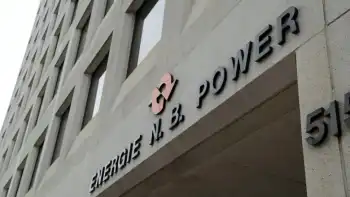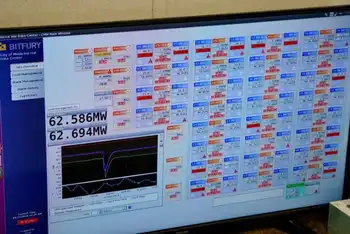After 10 years, it's time to power up electricity auction
CHICAGO, ILLINOIS - Higher electricity bills aren't on anyone's radar now, especially since most of us are still getting over the shock from our gas bills this winter. But the party is almost over for residential electrical rates in Illinois, which were rolled back 20 percent in 1997 and have been frozen for the last nine years.
Starting next January, Illinois will switch to a deregulated, market-based system, and your electricity bills are almost certain to get bigger, perhaps significantly bigger.
That said, Commonwealth Edison has proposed a responsible plan for deregulation, and the Illinois Commerce Commission should approve it.
The 10-year rate freeze and the move toward deregulation were passed by the Legislature in 1997. As part of the process, ComEd sold off its generating plants and became a transmission company that must buy its power on the open market starting next year.
ComEd has proposed to do that through a state-monitored "reverse auction." During such an auction, an independent manager sets a starting price he or she knows will be enticing to power companies, and they bid on how much power they will supply at that price. If the opening bid is set correctly, the companies will propose to supply far more power than will actually be needed to meet the expected level of demand. The manager then lowers the price, which presumably will generate fewer bids, and keeps lowering it until the level of bids matches the demand.
ComEd predicts bills will jump up to 20 percent in the first year of deregulation. That includes a 6 percent increase in delivery rates, which it is also requesting. To cushion the blow, ComEd said it will restrain rate increases to 8 percent, 7 percent and 6 percent in the first three years. ComEd CEO Frank Clark convincingly argues that it is not the auction itself, but higher generating costs over the last 10 years, that is responsible.
The Illinois Commerce Commission staff has endorsed the reverse auction process. So has an administrative law judge for the ICC. The auction plan has numerous opponents, most notably Gov. Blagojevich, who once threatened to fire ICC members who voted for it. Illinois Attorney General Lisa Madigan, Cook County State's Attorney Dick Devine and the Citizens Utility Board also object to the plan.
The opponents project a much higher rate increase - as high as 37 percent - and argue that consumers aren't ready for a competitive market. They suggest a variety of options, some of which border on a return to regulation. Those include extending the rate freeze, which could force ComEd to buy power for more than it could charge to sell it. That could have disastrous consequences for ComEd and eventually consumers.
It's too late now to get cold feet about deregulation. ComEd reasonably says opponents have had 10 years to come up with a better plan than the auction, and no one has. If done correctly, it will be a transparent, efficient way to buy power.
Related News

Electricity subsidies to pulp and paper mills to continue, despite NB Power's rising debt
FREDERICTON - An effort to fix NB Power's struggling finances that is supposed to involve a look at "all options" will not include a review of the policy that requires the utility to subsidize electricity prices for six New Brunswick pulp and paper mills, according to the Department of Natural Resources and Energy Development.
The program is meant "to enable New Brunswick's pulp and paper companies have access to competitive priced electricity," said the department's communications officer Nick Brown in an email Monday
"Keeping our large industries competitive with other Canadian jurisdictions is important," he wrote, knocking down the idea the subsidy…




